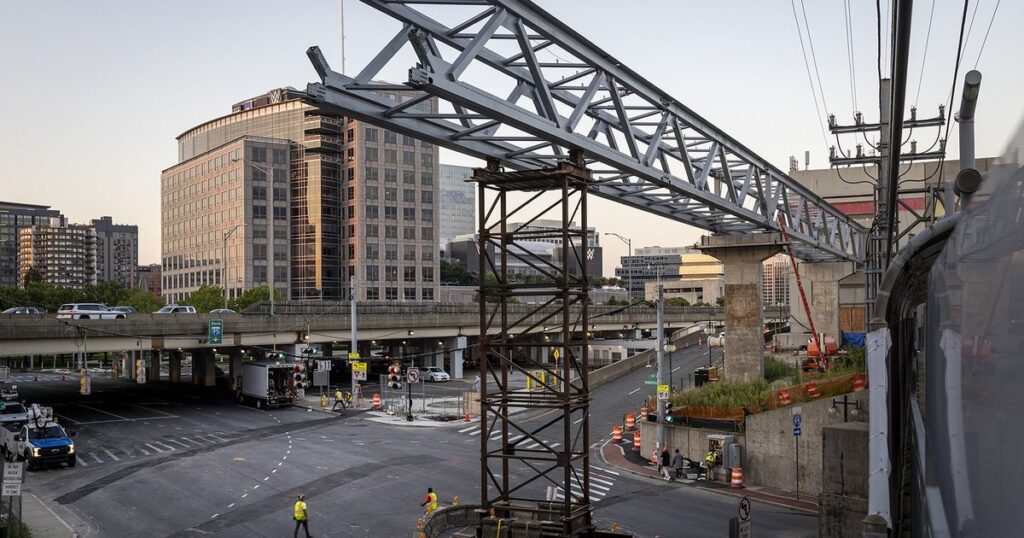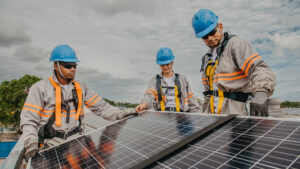
The Bipartisan Infrastructure Law
The Bipartisan Infrastructure Law, also known as the Infrastructure Investment and Jobs Act, was signed into law by President Joe Biden on November 15, 2021. It passed both the House of Representatives and the Senate with bipartisan support. Here are the vote breakdowns for each chamber:
In the House of Representatives:
The Infrastructure Investment and Jobs Act passed the House on November 5, 2021.
The vote tally was 228 in favor and 206 against.
All Democrats who voted supported the bill (219 Democrats voted for it).
Thirteen Republicans crossed party lines to vote in favor of the bill.
In the Senate:
The Infrastructure Investment and Jobs Act passed the Senate on August 10, 2021.
The vote tally was 69 in favor and 30 against.
In the Senate, 19 Republicans joined all Democrats in voting for the bill.
The bipartisan nature of the support in both chambers of Congress was a notable aspect of the legislation's passage, reflecting a rare instance of cooperation on a significant infrastructure investment bill.
The Infrastructure Investment and Jobs Act passed the House on November 5, 2021.
The vote tally was 228 in favor and 206 against.
All Democrats who voted supported the bill (219 Democrats voted for it).
Thirteen Republicans crossed party lines to vote in favor of the bill.
The Infrastructure Investment and Jobs Act passed the Senate on August 10, 2021.
The vote tally was 69 in favor and 30 against.
In the Senate, 19 Republicans joined all Democrats in voting for the bill.
Latest Infrastructure Investment News
Key Provisions of the Bipartisan Infrastructure Law
The Bipartisan Infrastructure Law represents a significant milestone in addressing the critical infrastructure needs of the United States. This historic investment promises to improve the daily lives of Americans by enhancing transportation networks, providing access to high-speed broadband in underserved areas, promoting clean energy initiatives, and addressing pressing environmental concerns. Moreover, it is expected to create job opportunities, stimulate economic growth, and foster a more resilient and sustainable future for the nation, addressing long-standing infrastructure deficiencies that have hindered progress and prosperity.
Transportation Infrastructure:
$110 billion for roads and bridges, addressing safety and maintenance.
$39 billion for public transit improvements and expansion.
$7.5 billion for electric vehicle (EV) charging infrastructure.
$66 billion for passenger rail, enhancing rail transportation.
$25 billion for airport upgrades and modernization.
Clean Energy and Climate Initiatives:
$73 billion for modernizing the electrical grid for reliability and resilience.
Promotion of renewable energy sources and clean energy transmission.
Funding for electric school buses and low-emission public transportation.
Broadband and Digital Equity:
$65 billion to expand access to high-speed broadband in underserved areas.
Affordable internet options for low-income families.
Promoting digital equity and closing the digital divide.
Water Infrastructure:
$55 billion for improving and modernizing water infrastructure.
Focus on replacing lead pipes and addressing PFAS contamination.
Enhancing water quality and safety.
Resilience and Climate Adaptation:
Funding for infrastructure projects that can withstand extreme weather events.
Investments in climate-resilient transportation and energy systems.
Environmental Remediation:
$21 billion for cleaning up polluted sites and hazardous materials.
Promoting public health and environmental protection.
Public Transit and Connectivity:
Supporting affordable and reliable public transit options.
Enhancing connectivity between communities and improving transportation access.
Job Creation and Economic Growth:
Creating numerous job opportunities in construction and related industries.
Stimulating economic growth through infrastructure investment
To learn more about the impact and projects funded in your community: Investing in America - Build.gov | The White House
To apply for jobs that support the Bipartisan Infrastructure Law: USAJOBS



